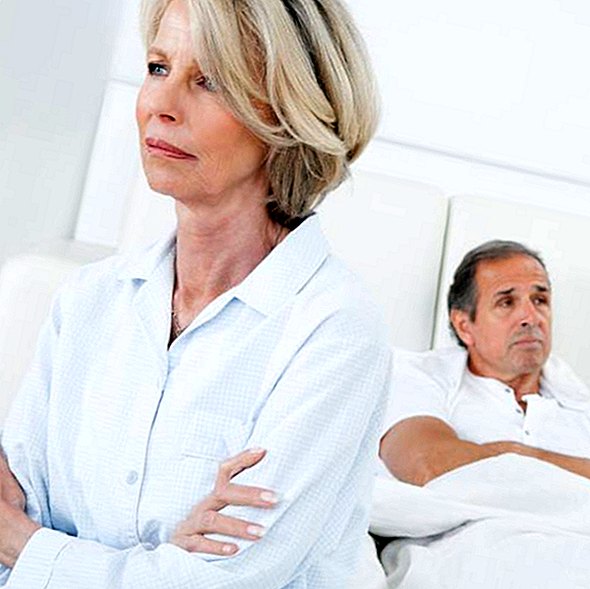Menopause: When the hormones suddenly get out of balance

What is the menopause?
Menopause is a major turning point in a woman's life and is essentially the counterpart of puberty. During puberty, the female body sets about producing fertile eggs that marks menopause and defines the end of the fertile period with the last menstrual period.
Menopause occurs in Western countries average at the age of 51.4 years However, there are also cases of premature menopause (climacterium praecox), which occurs either naturally or as a result of radiation or chemotherapy. In these women, the bleeding stops at the age of 35 years.
Which phases does the body go through?
The first changes in the cycle occur years before the actual menopause. On average, the woman is about 47 years old when she is in the premenopausal comes. At this stage, hormonal balance gradually changes. The production of the hormone progesterone (luteal hormone) decreases and the concentration of estrogen increases at the same time Increase intervals between the bleeding, An ovulation occurs only rarely.
In the second phase (perimenopause), the actual high phase of the climacteric, follicles the follicular maturation in the ovaries, Ovulation will eventually disappear altogether, As a result, the production of the hormone estrogen is also reduced, while the male hormones continue to be produced at their current level. The women suffer from a low level of estrogen and the inertia of their ovaries during this time.
The postmenopause begins about one to two years after the last menstruation. In this phase, the gestagen and estrogen production comes to a standstill, contraception is no longer necessary. The women are then on average about 65 years old.
What symptoms indicate the climacteric?
The signs of the menopause occurring are versatile and not equally clear. At the beginning, women may experience only chest tensions and mild irritability, but symptoms increase during menopause. Typical menopausal symptoms are:
- hot flashes
- sweats
- nervousness
- palpitations
- sleep disorders
- depression
- hair loss
- exhaustion
- vaginal dryness
- Sexual problems
- urinary infection
- menstrual disorders
- incontinence
But how come these "side effects"? Experts agree that the symptoms are caused by the decreasing levels of female hormones. However, in addition to the obvious physical problems, the estrogen deficiency can also disturb the mental balance. Mood swings, listlessness and depression are not uncommon in the climacteric.
In addition, sexual dysfunction can often develop during menopause, as the mucous membranes in the genital area become thinner and thus become less well-hydrated. Accordingly, the sexual excitement is also lower? and the "smooth" sex becomes rarer.
Women also become more susceptible to low estrogen levels osteoporosis, Joint pain and Cardiovascular disease, Because: When the hormone level drops, bone is also increasingly broken down. However, there are some things that women can do to keep their bodies healthy and productive.
What can women do about it?
Preventively, it is advisable, of course, to abstain from smoking, because heavy smokers experience their last period on average earlier than non-smokers. If the menopause has already started, a healthy lifestyle is the alpha and omega for affected women. Swimming, cycling or Nordic walking keep you active? combined with the right low-sugar and low-fat diet, they are balm for the soul. Then one escapes another side effect of menopause: the overweight.
In addition, there are some therapies for bad menopausal symptoms. Thus, traditional Chinese medicine or hormone yoga can help to get the complaints under control. However, if these are too massive, women may also consider hormone replacement therapy (HET). Hormone preparations for the Hormone treatment is available as tablets, gel, patch, nasal spray or as an injection, With this hormone therapy, the estrogen level is raised again, which not only has a positive effect on the hot flashes, but also on the mood.










